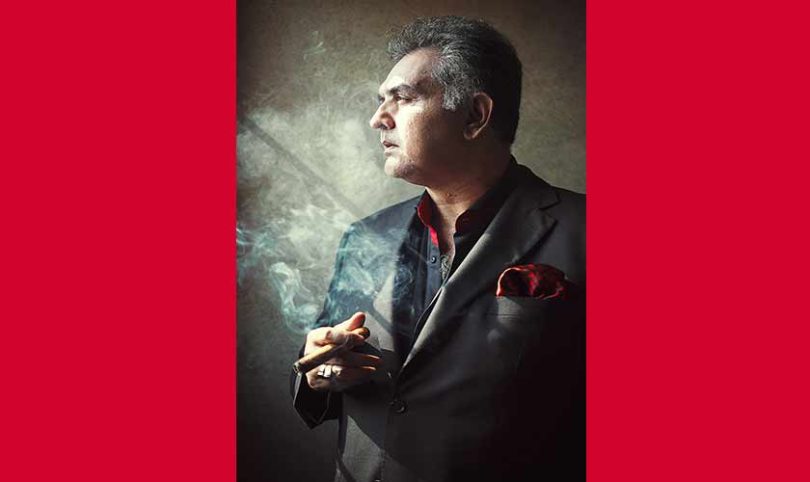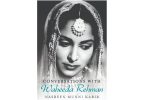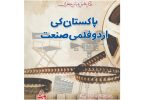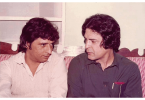Omair Alavi|Instep|August 30, 2020
Moazzam Ali Khan, featuring these days as the arrogant seth Fareed in drama serial Sabaat, has more talent up his sleeve than you can imagine.
Some people become actors with willful precision; others take up acting as a hobby, regardless of how good or bad they are. And then there are those humble few who don’t even know their own skill until they accidentally step into the field, and surprisingly succeed. Moazzam Ali Khan belongs to the last category as he became an actor just to test the waters and ended up winning the swimming competition. Being the great grandson of the first Prime Minister of Pakistan Sahibzada Liaquat Ali Khan, Moazzam would have been more suited to politics, but he opted for acting, a field in which his own parents ventured a long time ago.
Instep decided to meet up with seth Fareed of Sabaat and ask him why he chose to venture into acting so late and why he didn’t opt for singing, since he obviously had the voice for it.
Instep: Your parents Nawabzada Musharraf Ali Khan and Mumtaz Parveen acted in Sunehre Din in the early 1990s and the shooting was done at your place for your father’s convenience. How did Shoaib Mansoor miss another star in the same household?
Moazzam Ali Khan: (Laughs) My mother and Shoaib Mansoor were colleagues in PTV long ago. Shoaib sahib always wanted to cast my father in one of his plays, despite his refusal, since he thought he couldn’t act. For Sunehre Din he finally managed to cast both of them as parents of the leading lady and the shooting was done at our place in Islamabad to make it all the more convenient for them. I wasn’t interested in acting back then and like my brother Sahibzada Abbas Ali Khan, was more inclined towards music. Maybe that’s why he didn’t bother with me; who knows how things would have shaped up if he had.
Instep: Your great grandfather Liaquat Ali Khan was the first Prime Minister of Pakistan, one of our founding fathers and pride of the nation. Why didn’t you use that to your advantage, to enter politics, like most of our politicians do?
MAK: I believe politics isn’t my cup of tea and had it been, I would surely have ventured into it. After my great grandfather Liaquat Ali Khan’s martyrdom in 1951, his eldest son from his first wife (Nawabzadi Jhangira Begum, also first cousin of Nawabzada Liaquat Ali Khan) Nawab Wilayat Ali Khan did try his hand at politics but quit for health reasons. My uncle Akbar Liaquat was next in line but even he realized that he wasn’t cut out for it whereas my father had no interest in politics. In fact, because of my father I stayed away from it too as he was always against it. Instead, I chose to venture out on my own. I spent some time in the advertising industry followed by a stint in Public Relations (PR) and the Corporate Social Responsibility (CSR) department of one of the leading Telecom brands in the country. The fact that we bagged not one but two Awards – one Presidential award for best Public Relations in private sector by APNS and another for CSR activity – tells me that I was right in avoiding politics.
Instep: How did you make the switch from the corporate sector to acting, the two are poles apart?
MAK: I left Pakistan for a couple of years to experience PR Consultancy in the Middle East and on my return, met a friend who advised me to try my hand at acting. Despite my refusal for obvious reasons, he did make me go for an audition, after which they selected me to play seth Fareed in Sabaat. The fact that Leyla Zuberi – whom I knew from before – was playing my onscreen wife made me a little more comfortable in taking up this challenge and the rest as they say is history. I am glad I got to work with an ensemble cast where the young actors and veterans both were encouraging, enabling me to deliver my best performance on the first try.
Instep: We also hear your voice in TV commercials, while your music videos and narrations/readings have gone viral in recent years. Why didn’t you think of pursuing that line?
MAK: Music has always been important to me and my family; my mother and aunt used to sing but not professionally. My younger brother Abbas is a classically trained singer and a music composer (he has several hit songs to his credit) while our father is a good listener and always hosted mehfils at our place where the who’s who of showbiz were invited. I have always been a fan of the late Mehdi Hassan and Jagjit Singh and modelled my style on the latter’s way of singing. Due to my commitments I couldn’t take it up full time but whenever I get the chance, I do something to fulfil my inner self.
As for the narrations and readings, I feel that our younger generation is drifting away from Urdu poetry and literature and is not too keen in even speaking the language, unfortunately. I started narrations and readings a couple of years ago, without expecting much from the videos, but when people from around the world appreciated them, and specially the younger generation, it encouraged me a lot. I also got a sense of achievement and fulfillment that I am contributing towards something I strongly believe in, which is taking pride in your own language and culture.







